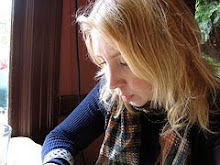Mongolia is, above all, frozen in time. The countryside is so beautiful it hurts your eyes a little. Traveling through it, riding on it, looking at it is all there really is because there is almost no development outside the cities. There's nothing do, per se. You look, and it let's you, and there you have it.
The horizon never ends and the sky is its own stage, actor, story and key grip. This is Mongolia's best feature, its Betty Davis eyes, and it takes some will to zip your tent flap at night or slam your ger door against it. Everyday it trots out blazing sunsets, infinite stars, blowing storms seen from miles away, perfect 3-D movie clouds, and dawns you want to wake up for (even if you don't). The headliner though, is the full arch of rainbow that appears more often than seems natural. Its like some compulsive director in back is screaming from his chair "stop the rain on my count. now, cue the rainbow. no, the big one. RAINBOWS RAINBOWS NOW!" Rainbows so big and so lasting you can hear the leprechauns chuckle. Or perhaps its the Nomad kids. I gave them too much candy and they're bouncing off the ger walls.
The reverence for nature is evident everywhere you go; the fence less grasslands, prohibited ownership of land, roaming herds, tiny carbon footprints left by the Nomads who still live in movable felt tents, eating and wearing what is provided by their flock. The lifestyle is extreme by any measure; the country is covered in ice 9 months of the year and its not uncommon for significant numbers of the herd (also known as their entire livelihood) to die off during a cold winter. The Nomadic lifestyle is a source of pride for Mongolians and it is fascinating to hang with these people who live on very little, survive by the land, and seem pretty contented doing it. For the Westerners, though, its impossible not to consider the other side of the pro-Nomad argument. Alcoholism is rampant and incest is not uncommon. Children work from the time they can walk (mostly collecting dung for fires) and education is, of course, secondary to survival. Its hard not think 'how have you been left here, in the 13th century? why hasn't progress reached you? is struggle so embedded that alternatives aren't discussed? are you lonely out here?'
Its impossible for us to comprehend but, like everything else in Mongolia, unreal to see.
Subscribe to:
Post Comments (Atom)


1 comment:
Sounds like you stepped back into time. You're right, I need to go there.
Post a Comment